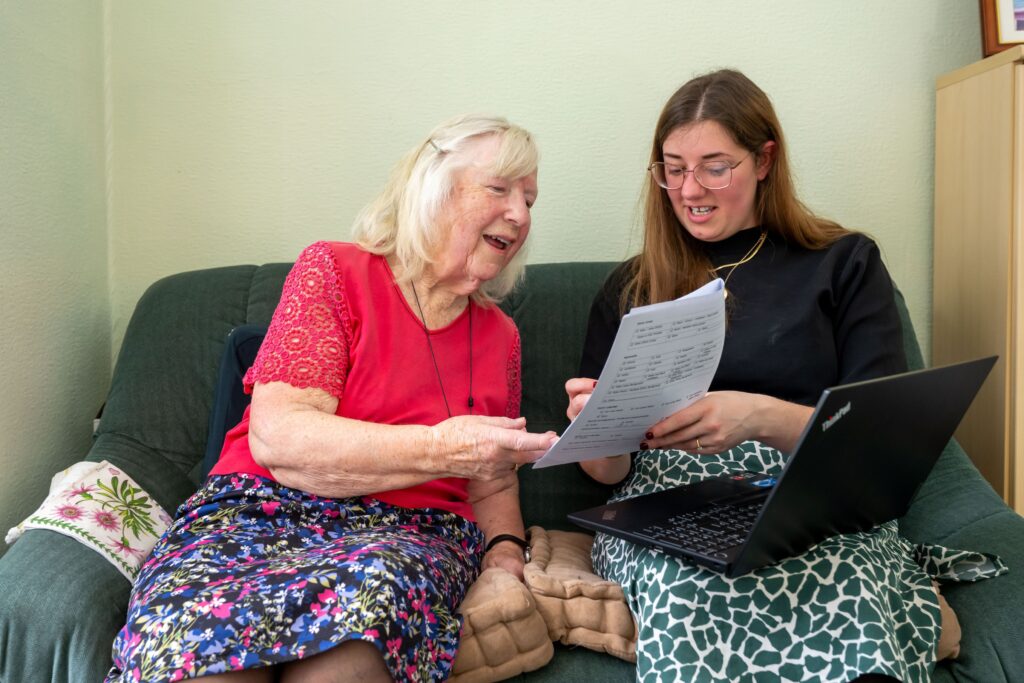Eluned Morgan explores the potential to better support the care sector in Wales.
We all want to see older people get the best possible care. However, here in Wales we have a social care time-bomb. Before it goes off it is absolutely critical that we have an honest, challenging, conversation right now about the future of care in Wales and how we are going to pay for it. Otherwise we risk facing a social crisis, the likes of which we have not seen in this country since the days of the workhouse. This is a challenge for us all: the Welsh Assembly, the Welsh Government, the people of Wales.
We need to start a discussion on the establishment of a National Care Service for Wales – a service that will in time be as loved and respected as our National Health Service, but a service that will be integral to the health service and work hand in hand with it. We need an overarching framework where people will know what to expect in terms of care in their old age and will receive a quality of service which is consistent across Wales.
It is essential that we work cross party and cross departmentally, and that we develop a consensus between generations. We need to reflect on a new funding model, which develops a fair balance between the state and the individual. We need to rethink our building policies, which could promote economic development in our communities, but most of all we need to develop a new and deep respect for the people who work in this essential service and give them the training and financial support that they need and deserve.
Population changes
When the NHS was set up by the Labour Government in 1948, it was understood that life expectancy for men was 66, and for women, 71 years of age. Some of those poor men retired from work at 65 and were lucky if they lived for a year! Children born today can expect to live until they are a hundred. Health and care services are struggling to keep up with this demographic shift, and the State is struggling to pay for it.
Report after report has noted that something needs to be done, the amber lights have been flashing for a long time, but they are about to turn red. We, as Welsh politicians, have the possibility to steal a march on the UK Government which continues to duck the issue and to come up with our own solution to a problem which is not going away.
We cannot deny the evidence of recent statistics, which warn us that the current system is unsustainable. In August alone, over 455 patients were recorded as experiencing delayed care transfers: that’s a lot of blocked beds!
Population forecasts for Wales predict a dramatic increase in the number of people over the age of 85 in the next 25 years. By 2037, this age group is set to soar to over 180,000, that’s the equivalent to the whole of the population of Carmarthenshire. These statistics are our families, our friends, and as a civilised society we have a responsibility to care for them.
The costs of care
£296m was spent on looking after the elderly in Wales in 2013 – by the time I am 85 we will need to be spending almost a billion. That’s almost 7% of the entire Welsh budget. That money will have to be cut from elsewhere unless something changes.
Many people are unaware that there are limits to the State’s support of care costs. Should an individual’s savings fall below the £50,000 threshold in Wales, the State has an obligation to support care costs. However, those with capital exceeding this rate, will be expected to contribute in part, or wholly towards the cost of their care. It’s a complex system and it is perceived by many to be unfair.
Neither is care cheap. Across Wales, the weekly cost typically varies between £450-500 for residential care and £500-600 for nursing. But compare that to the cost of staying in a budget hotel for 7 nights. Add on food costs, laundry costs to your hotel bill, and then add on what you’d expect to pay staff for assistance with dressing, using the toilet. It’s pretty easy to see how the costs of care mount up.
The average time a person spends in a care home is over two and a half years, incurring costs of over £75,000. This far exceeds the average pension pot and the £35,000 lifetime contribution cap proposed by the Dilnot report, prior to State intervention. Women are particularly hard hit as they are more than twice as likely to need long term care, and are more than twice as likely to retire without their own pension pot.
Thanks to the Welsh Labour Government’s introduction of a cap on care costs at £60 a week, domiciliary care in Wales is more affordable, allowing more people to remain in their own home for longer. In addition to this, we have increased the capital people can keep to £50,000 before they are required to contribute to the cost of their care; but with these projected demographic changes, some seriously hard questions have to be faced.
Our rapidly ageing population means increasingly large numbers of older people are being supported by a smaller working population. None of us know whether we will be one of those needing care, so now is the time for us to consider whether it is time to pool the risk collectively as a society. It is probably also worth asking whether people should cover their general living costs such as food and accommodation in residential care, and separate that out from the actual cost of care.
There is an economic impact to not acting. Not only for the elderly, but also for those with ageing parents. If people are required to leave their jobs to assume care responsibilities, then that impacts on our economy and tax system. With the number of self-employed people on the increase, they too will be affected by caring demands.
Understanding the level of demand for future care services, and the associated costs, is paramount in how we plan for an efficient as well as equitable social care system. Given the current pressures on the NHS, we must strive wherever possible to move away from high-cost, reactive and bed-based care, to care that is preventative and proactive, which focuses as much on wellness as on responding to illness. It makes absolute sense to move where possible away from bed-based care and the Wellbeing Act implemented by the Assembly should work towards this.
Breaking down the boundaries between health and care
Finally we need to break down the artificial barriers between health and care. At the moment arguments over who pays and how to pay are clogging up the system and causing delayed transfers of care. The intermediate care fund is a step in the right direction, but heads need to be knocked together in Local Government and in the Welsh Government to smooth out the system and to save money. Local Government and the Welsh Government need to talk! £60m in a budget of approximately £7billion for health is but a drop in the ocean. We need to ask how far we should and could go to integrate health and social care – perhaps to even think the unthinkable and to merge both funds. A hospital bed is far more expensive than a bed in a care home! Ultimately, however, it is all public money and the public don’t worry which pot it is coming from.
We cannot duck this issue and we cannot wait for England. The Labour Party rightly emphasised in its manifesto that the care sector should be a sector of strategic national importance, and I was delighted to see that this was underlined again last week in the Welsh Government’s Taking Wales Forward programme. It is our responsibility as elected representatives to bring about change on this extremely sensitive issue. This problem will not go away, we must act now and we must establish the National Care Service for Wales.






Comments are closed.